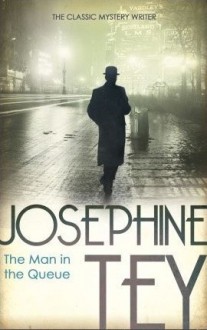AWS SQS Tutorial- What is Amazon SQS, Benefits of Amazon Simple Queue Service, Companies using AWS SQS, Standard Queue, FIFO Queue in Simple Queue Service

AWS SQS Tutorial- What is Amazon SQS, Benefits of Amazon Simple Queue Service, Companies using AWS SQS, Standard Queue, FIFO Queue in Simple Queue Service

‘Yes,’ she said; ‘that’s all very well, but look at the long night there’ll be. You never know the minute you’ll waken up hungry and be glad of the sandwiches even if it’s only to pass the time. They’re chicken, and you don’t know when you’ll have chicken again. It’s a terribly poor country, Scotland. Goodness only knows what you’ll get to eat!’
Grant said that Scotland nowadays was very like the rest of Britain, only more beautiful.
‘I don’t know anything about beauty,’ said Mrs Field, putting the sandwiches resolutely away in the rug-strap, ‘but I do know that a cousin of mine was in service there once – she went for the season with her people from London – and there wasn’t a house to be seen in the whole countryside but their own, and not a tree. And the natives had never heard of teacakes, and called scones “skons.”’
‘How barbaric!’ said Grant, folding his most ancient tweed lovingly away in his case.
The Man in the Queue is Tey's first book in the Inspector Grant series and deals with the mystery of a murder that occurs in plain sight but has no witnesses. This is not a spoiler as such as this literally happens within the first few pages.
From there on we are introduced to Scotland Yard's Alan Grant, who is the Inspector investigating the case. Grant is a great character - he is funny, contemplative, but also does not shirk away from action.
Some of the funniest parts of this story are build around the dialogue that Grant has with various other characters. And the best part is that they are meant to be funny. They are not just funny because they are quaint - there is some freshness to the dialogues.
‘No time is wasted that earns such a wealth of gratitude as I feel for you,’ said Struwwelpeter. ‘I was in the depths when you arrived. I can never paint on Monday mornings. There should be no such thing. Monday mornings should be burnt out of the calendar with prussic acid. And you have made a Monday morning actually memorable! It is a great achievement. Sometime when you are not too busy breaking the law come back and I’ll paint your portrait. You have a charming head.’
Of course, this should not come as a surprise when we know that before writing this book, Tey had already become a successful writer of plays and other stories under her pseudonym of Gordon Daviot. But it was a bit of a surprise to me, because quite a few reviews of The Man in the Queue did mention that the book had not aged well, a criticism which also seems to be linked with the use of the slur "Dago" throughout the book.
I can of course understand that criticism. However, having read two of her other novels in this series also, I am beginning to wonder whether Tey's use of satire and irony may have been at play here, too. She uses the term "Dago" so abundantly to refer to main suspect that I began to wonder whether this over-use was intended to show the assumptions that Tey may have suspected her readers at the time to make as being blinded by stereotype rather than the analysis of the facts.
There are some other parts in the book that lead me to believe that Tey may actually have tried to dispel some of the stereotypes found in the pulp fiction of her time. (And of course, in her most famous work A Daughter of Time, we get to question again whether appearances really tell us anything about facts at all!)
Notably, Tey includes a dinner conversation in which she shows up a character who is a racist as an ignorant bigot:
"His race was a fetish with him, and he compared it at length with most of the other nations in Western Europe, to their extreme detriment. It was only towards the end of tea that Grant found, to his intense amusement, that Mr Logan had never been out of Scotland in his life. The despised Lowlanders he had met only during his training for the ministry some thirty years ago, and the other nations he had never known at all."
I have no biographical proof for this notion of mine. Tey was a private person. Even Josephine Tey is a nom de plume. However, I am looking forward to finding out more about Tey and see whether I can put some meat on this bone in the course of reading more by and about her.
As for The Man in the Queue, it is not a great mystery - which is another reason I am inclined to believe that Tey's interest lay more with the creation of ambiguity than with a plot that would thrill lovers of puzzles. There are no clues that would lead the reader to the ultimate solution of the murder. In fact, the ending and solution comes quite out of the blue. In that sense, I would even say that it might work as a mockery of the detective genre. (Maybe that is the reason why it took another 7 years for the next book in the series? I have no answers.)
Still I found it very much worth reading.
"Well, he would find out from the Yard if there was anything new, and if not, he would fortify himself with tea. He needed it. And the slow sipping of tea conduced to thought. Not the painful tabulations of Barker, that prince of superintendents, but the speculative revolving of things which he, Grant, found more productive. He numbered among his acquaintances a poet and essayist, who sipped tea in a steady monotonous rhythm, the while he brought to birth his masterpieces. His digestive system was in a shocking condition, but he had a very fine reputation among the more precious of the modern littérateurs."

Grant went in to Barker and said, ‘I’m going fishing in Scotland for a day or two.’
‘There are more comfortable places than Scotland for hiding your diminished head,’ said Barker, who knew all about the arrest that had side-slipped.
‘May be, but the fishing isn’t so good. That’s my approximate address. Two days will do me, I expect.’
‘Taking anyone along?’
‘No.’
‘I think you’d better. Think for a moment what a Highland rural policeman is like.’
‘He can always kill the fish by falling on it – but I don’t think it will come to that. I may want someone to take the fish to London, though.’
‘All right. When are you going?’
‘I’m going with the seven-thirty from King’s Cross tonight, and I’ll be in Inverness before ten tomorrow morning. After that I’ll advise you.’
I have so many questions about this...but they will all need to wait until my Tey biography becomes available at the library.
What does strike me tho, is how much even rail travel has both improved and stayed the same over the last century. You can still make the journey from King's Cross to Inverness quite comfortably on a train, but instead of taking more than a day, the journey now can take as "little" as 8 hours by direct train. Whereas, I understand from Tey's descriptions here that her characters (and Tey herself) needed to change at Waverley.


Well, I originally thought about The Tiger in the Smoke for this square, but I've tried to get into that book a couple of times before and just couldn't.
Also, I picked up Josephine Tey's The Man in the Queue this morning and read more pages than I intended, so I might as well finish the book for the Darkest London square. The connection here is that the book starts with a murder in the heart of London's theatre-land.
